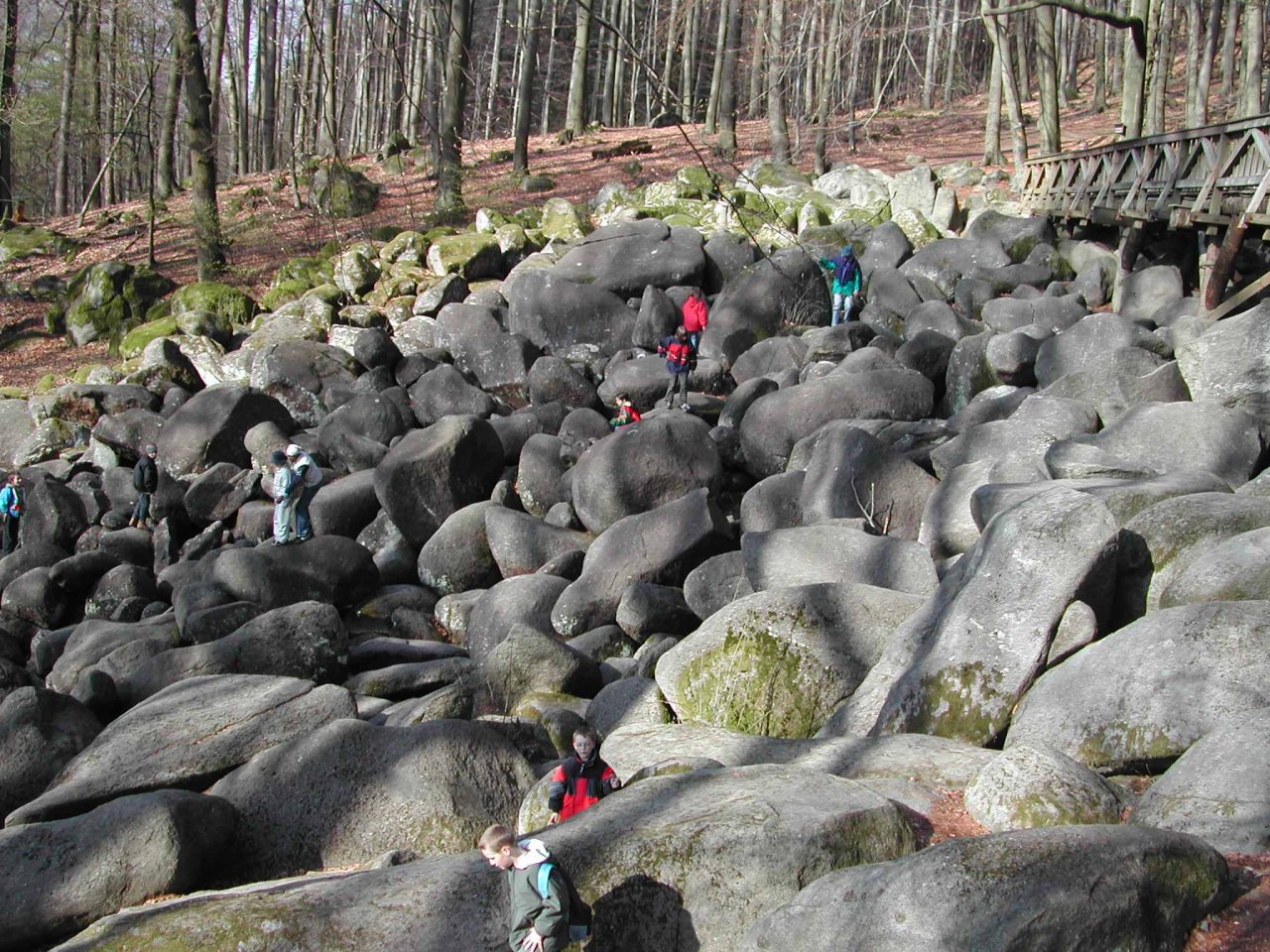Culture and nature
Geoparks

UNESCO Global Geoparks are single, unified geographical areas where sites and landscapes of international geological significance are managed with a holistic concept of protection, education and sustainable development, focussing both on residents and visitors.
A UNESCO Global Geopark creates value from its geological heritage, highlighting other aspects of the area’s natural and cultural heritage and tracing the history of our planet in order to shed light on its present conditions. The UNESCO Global Geoparks function as model territories for sustainable development and call attention to the challenges facing society and also the natural world.
Local communities within a UNESCO Global Geopark collaborate with scientists on devising strategies for their regional sustainable development, in order to preserve our natural and cultural heritage, and to facilitate socio-economic growth. The UNESCO Global Geoparks also collaborate globally in their shared goal to make the earth’s history visible, with an eye to the future of the planet.
There are 161 UNESCO Global Geoparks in 44 countries worldwide. As of July 2020, six of these are located in Germany:
- Bergstraße-Odenwald UNESCO Global Geopark
- Harz – Braunschweiger Land – Ostfalen UNESCO Global Geopark
- Swabian Alb UNESCO Global Geopark
- TERRA.vita UNESCO Global Geopark
- Vulkaneifel UNESCO Global Geopark
- Muskauer Faltenbogen / Łuk Mużakowa UNESCO Global Geopark (Germany and Poland)
Short profiles of each UNESCO Global Geopark can also be found on the UNESCO website.
UNESCO Global Geoparks and the Sustainable Development Goals
In September 2015, the United Nations adopted the 2030 Agenda for Sustainable Development and its 17 Sustainable Development Goals (SDGs). Governments, businesses and civil society together with the United Nations have started to mobilize efforts towards implementing the targets of these SDGs by 2030.
UNESCO Global Geoparks significantly contribute to the SDGs, for instance through holistic educational concepts and by enhancing awareness for major societal challenges. According to the criteria for UNESCO Global Geoparks, one of the main tasks is in fact to promote awareness of „key issues facing society in the context of the dynamic planet we all live on“.
The National Committee
The National Committee for UNESCO Global Geoparks in Germany was inaugurated in April 2016 at the German Federal Foreign Office. The National Committee is in charge of German geoparks that are applying for the UNESCO Global Geopark label or that are already nominated for the designation. For this purpose, the National Committee has adopted additional criteria and procedures. The National Committee consists of a wide range of experts specializing in various subjects relevant to UNESCO Global Geoparks, including geosciences, education for sustainable development, regional economic development, tourism and representatives of federal and state authorities. Simultaneously, the UNESCO Global Geoparks Unit was established at the German Commission for UNESCO. This unit not only assists the National Committee and prepares its regular meetings but also provides guidance and advice to aspiring as well as existing UNESCO Global Geoparks (geoparks(at)unesco.de).
Application procedure
The National Committee adopted additional national criteria and procedures for UNESCO Global Geoparks in Germany. These criteria are tailored to the German context and specify the international criteria accordingly. They are applied within the framework of a two phase application/revalidation procedure. Potential applicants as well as established UNESCO Global Geoparks in Germany must first address the National Committee before the application or revalidation in question is forwarded to the IGGP Secretariat at UNESCO – this is, among others, due to the fact that the annual number of applications to the UNESCO is limited. For this purpose, interested applicants have to contact the German Commission for UNESCO. Applications are only forwarded to UNESCO with the approval and support of the National Committee; further evaluation and consultation will follow at the international level.
1. Applications submitted to the National Committee
Being recognised as a National Geopark in Germany is a prerequisite for submitting applications to UNESCO (www.nationaler-geopark.de). A certified National Geopark can apply for the UNESCO Global Geopark label every year. To initiate the application procedure, the applicant has to submit an expression of interest – maximum one page – until 15th January at the UNESCO Global Geoparks Unit, which also gives advice on formal requirements.
The draft proposal must be submitted to the UNESCO Global Geoparks Unit at the German Commission for UNESCO in English until 31st March and the UNESCO Global Geoparks Unit is happy to provide guidance during this phase of the application procedure.
After submission of the application, a team of National Committee members will undertake a field mission in the respective Geopark which is usually foreseen for the months of June/July. On the basis of the application, supplementary expertise and the results of the field mission, the National Committee decides upon forwarding the application to UNESCO. The UNESCO Global Geoparks Unit at the German Commission for UNESCO will offer its support as far as possible (geoparks(at)unesco.de).
2. International Procedure
If the National Committee forwards the application dossier to UNESCO, Paris, the international application procedure starts. Further information regarding the international application procedure can be found on the corresponding UNESCO pages (see below).
Revalidation Procedure
Every four years, UNESCO Global Geoparks are subject to a revalidation; generally, an increase in quality regarding the geoparks‘ work and functioning is expected. As well as the application procedure, the revalidation procedure comprises two phases. The revalidation by the National Committee at the national level is followed by the revalidation at the international level.

